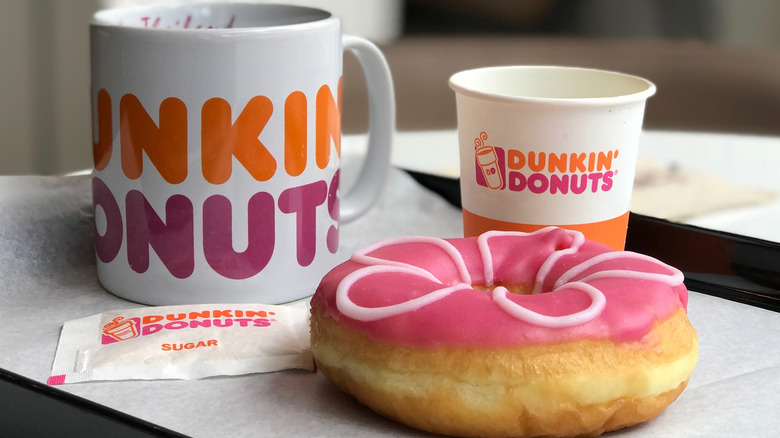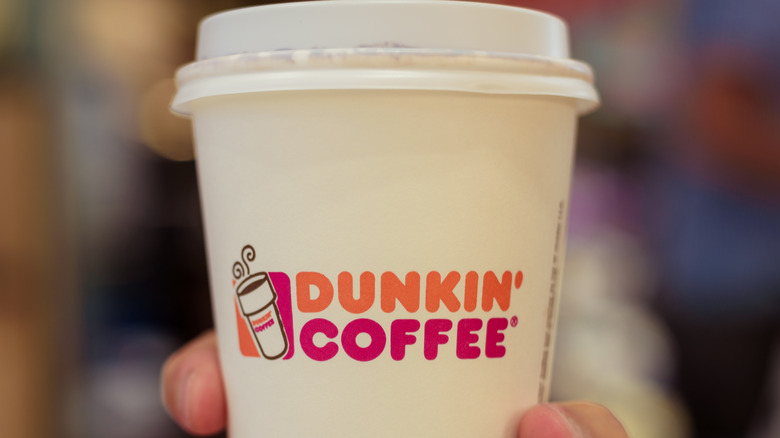The Incredible Way Dunkin' Made South Korea Crave Coffee
Even if you manage to create the most brilliant product ever invented (which, without any doubt at all, would be a magic money tree), it would be completely worthless if nobody knew about it. That's where marketing comes in, with promotional techniques including posters, social media, and even cold calls considered to be beneficial by Investopedia.
But does anyone actually believe what they see in ads? Not really, according to Insider Intelligence. In the U.S., the majority of adults don't particularly trust any form of advertising, with social media being perceived as reliable by only 19%. With this in mind, perhaps traditional advertising requires a refresh to become more effective.
Dunkin' has definitely stepped up to take on this challenge. For an international coffee company, South Korea is an important market, with the country being one of the world's largest importers of coffee, notes the International Coffee Organization. Very much like a caffeine-charged coffee, Dunkin' burst into South Korea with a vibrant marketing method that helped to enhance the company's success.
Dunkin' used the smell of coffee to increase sales
As of 2014, Dunkin' operated over 900 stores in South Korea, notes The Boston Globe, but the success of these locations has been helped by a cunning engagement strategy. To boost demand for its coffee and donuts, Dunkin' took advantage of the bus network in the country's capital, Seoul.
According to CNBC, coffee-scented air fresheners were fitted on buses in the city, which released the smells of Dunkin' while a radio commercial simultaneously promoted the brand. Not by coincidence, this would happen just before the bus stopped outside a Dunkin' store, and the advertising ploy eventually reached 350,000 bus passengers.
Not only did Dunkin' sales near bus stops surge by 29% as a result of the scheme (per CNBC), but figures revealed by The Boston Globe after the campaign showed that almost 40% of Dunkin's international sales stemmed from South Korea.
However, it's possible that consumers might not have been so engaging had they known exactly what was going on — research reported by Insider Intelligence regarding social media advertising finds that 66% of people think that advertisements that follow them are creepy.

